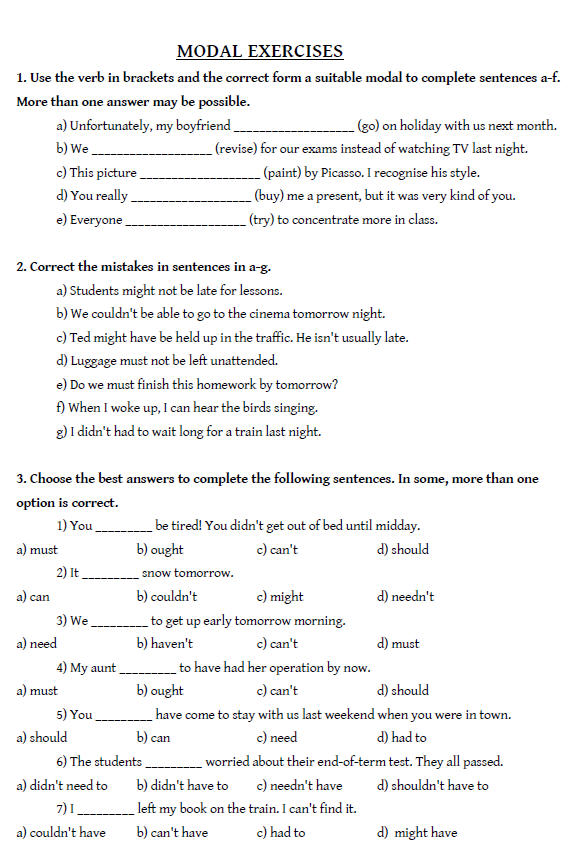


The form could have is also used when talking about something that could have happened, but did not:

However, when the same assumption applies to the past, we use “could have” form. To assume the present and the future, instead of may/might we also use the verb could: If we want to say that something probably happened in the past, we use may have or might have: To express that something is probably happening now or will happen soon, we use the modal verb may or might: It requires the usage of the so-called perfect infinitive, which is the construction of the modal verb + have + past participle. Being related to 'can', it can also express the idea of potential, but again, in this context, I'm not that really means anything too different.Article navigation: MODAL VERBS IN THE PAST MODAL VERBS IN THE PASTĪlthough the majority of modal verbs have no past form, it is possible to use them to refer to the past. 'could' can express the same idea of the speaker's uncertainty. In a way, this is also saying that it's possible for the bus to be late, though. If we say 'The bus may be late', we are guessing but don't really know. But generally speaking, I'd say 'may' and 'might' are expressions of the speaker's uncertainty about something. I'm not sure exactly what the difference between 'possibility' and 'a guess' are - these can be defined in different ways. Please know, though, that you'll probably need to spend some time noticing them in different contexts (ideally as you read text or listen to speech) to really understand them well. It's really difficult to summarise these uses in a few posts here, but I will try to help you here. Modal verbs are used in a number of ways, which can make understanding them a little challenging. We use must have and should have for the past: We use should to suggest something is true and we have reasons for our suggestion: We use must to show we are sure something is true and we have reasons for our belief: If Jones was at work until six, he couldn't have done the murder. We use can't have or couldn't have to say that a past event was impossible: We use can't or cannot to say that something is impossible: (= People often got lost in that town.) could and could have (= It was sometimes very cold there in winter.) We use could to make general statements about the past: Where are they? They could have got lost. We use may have, might have or could have to make guesses about the past: Notice the difference in meaning between can and may/ might/ could: He may/ might/ could be(NOT can) in his office. We do not use can to talk about specific events:ī: I'm not sure. (= People often get lost in this town.) Be careful! (= It is sometimes very cold here in winter.) We use can to make general statements about what is possible: We use may, might and could to say that something is possible, but not certain:


 0 kommentar(er)
0 kommentar(er)
